Moss: Book II on PlayStation VR
My time with Moss: Book II was a tale of two halves. One half was a rekindling of my love for VR, a medium that’s fallen by the wayside in the past 12-18 months in favor of the premium experiences releasing on PS5 and Xbox Series X. Experiences that don’t require strapping something to my face and the flailing of my arms in the middle of my living room. The other was a reminder of just how far VR has come since PlayStation VR’s release back in 2018, and how frustrating this very dated tech can make experiencing the fantastic games developers are still releasing on the platform four years later.
Moss: Book II isn’t looking to reinvent the wheel that its predecessor so meticulously crafted. At heart, it’s still the fairytale-inspired platforming experience which sees you guiding the titular white mouse, Quill, through a fantastical world oozing with charm and character.
The story follows on immediately from the events of the first game, where Quill and Uncle Argus embark on an adventure to save the world of Moss and put an end to the rule of the Arcane. To do this, players must help Quill acquire the five ‘glass,’ which are essentially the Infinity Stones of their world.
It’s an okay enough story, but it didn’t do enough to initially grab me. But, this is where Polyarc’s magic comes into play. The longer you’re in the world, pulling blocks, powering up Quill’s sword for her dash ability, or just gawking at the colorful scenery, the more immersed you find yourself and the more engaged you are in helping the adorable lil’ mouse succeed in her quest.
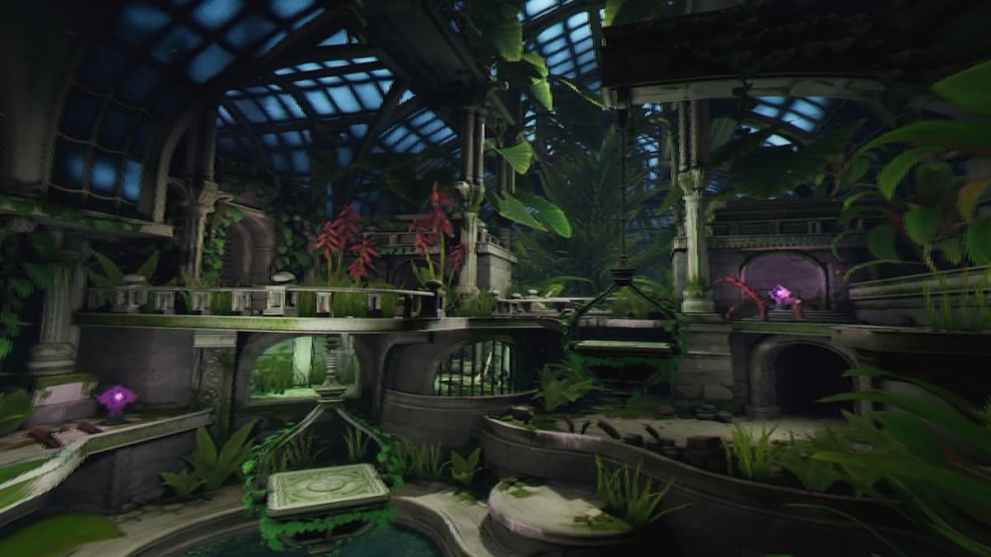
There’s an attention to detail that really elevates the experience, too, like the way the flames of candles realistically flicker, or how Quill’s tail snakes behind her with each teeny tiny footstep she takes through the world, and the way that her little pawprints leave little imprints in snowy environments.
Polyarc has poured just as much time and effort into making the world a fantastical world to exist in as they have crafting mind-melting puzzles that simply wouldn’t have the same lasting impact if you weren’t in the world with Quill, peering over rocks or peeking under bridges checking for hidden collectible scrolls.
Where Book II does look to stretch its legs from its predecessor is in the combat and puzzle design. The former is a mixed bag here. In diversifying the weapons Quill has in her arsenal — which she acquires as she progresses through the story — things are generally that little bit more interesting. The hammer, for example, is required to take out tougher, metal-clad enemies, where some Shuriken are great for damage control.
They also have their own abilities, allowing you to pound switches into place or stick one of the throwing stars into a wall, before moving and then calling it back, so it hits another on its return, opening up the way forward. It adds another layer to the environmental puzzling that is by far the best part of the Moss games.
Actually switching between these weapons is far too cumbersome, though. You need to press the touchpad to bring up a flower-shaped menu, then select the weapon you want with the motion controls, press R2 and then reach down to Quill to hand her the weapon.
Now, try doing that while you’re being bombarded by enemies. Yep, it’s a true test of your hand-eye coordination and muscle memory, but not in the fun way. Rather, in the frustrating way which makes you wonder what’s wrong with using Circle, or any of the d-pad buttons, or either of L1 or R1. (Ironically, all of these buttons have no actual gameplay use throughout the game’s duration.) Pressing Circle to quickly cycle through weapons would have been far less cumbersome, an issue accentuated by the PlayStation VR’s motion tracking.
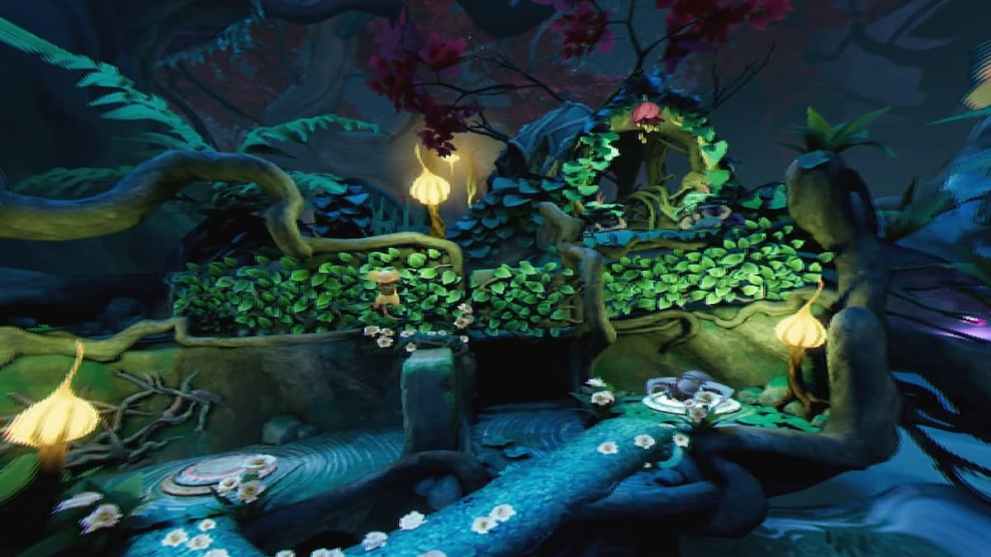
There was also a slight issue in the way the dash ability was used. In a 3D plain, it’s very difficult to gauge in which exact direction Quill would jolt forward and how far, and there’s no indicator on-screen to help with this. It resulted in me falling off the other sides of platforms or just missing them altogether because Quill wasn’t exactly straight-on to them. This may sound like a minor issue, but after the fourth or fifth time of falling to your death, despite knowing what you need to do, it can really start to detract from the fun.
For the most part, though, the platforming is what truly shines in Moss: Book II. It’s an evolution of everything you know and love from the first game, but with the aforementioned weapon abilities thrown into the mix adding another dimension in the puzzle of getting from A to B. Things can feel a little too simple towards the beginning, especially given the fact the first game already introduced us to a lot of the basic mechanics. It results in the opening hour or so feeling a little slow to get going, but after this, things suitably ramp up and you’ll be scratching your head before long trying to figure out exactly what it is you’re overlooking.
Further, the puzzles never feel too obtuse, which prevents any frustration from bubbling up and tarnishing this excursion into the tiny world of Quills. At least, not from the actual game itself.
Moss: Book II is currently exclusively on PlayStation VR, and it’s a real shame because the hardware’s really starting to show its age. Simply put, the motion tracking from the PS4 camera, DualShock 4 controller and PSVR headset resulted in plenty of frustrations. In moments where I was sat still, turning the pages of the large storybook, the whole world was rocking back and forth, despite me sitting still.
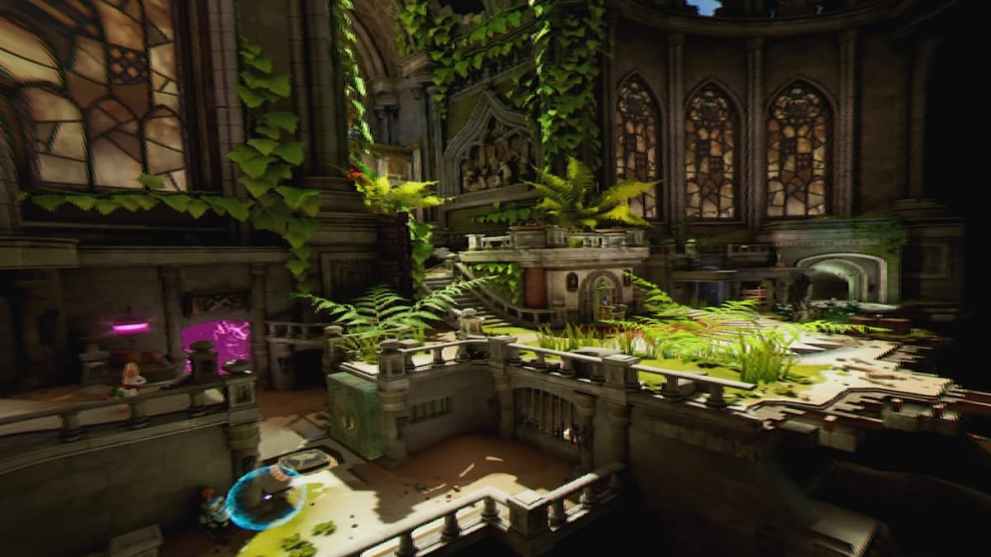
In actual gameplay moments, when trying to hand Quill a new weapon, or healing her (which requires you to hover over her with your reticle and use the triggers on your controller), they’d quickly jerk off, or I’d move out of the immediate playing area. The display’s also starting to feel a little dated, making Moss: Book II’s beautiful worlds look a little blurry. I’m eager to check out the game again when it (hopefully) launches on Quest 2.
Hardware limitations and frustrations aside, Moss: Book II is another resounding success for Polyarc, despite a few strange missteps in finnicky weapon switching and minor quality of life tweaks that could come as part of a future update. The collectibles provide ample reason to keep playing after you’ve finished the story, and the puzzle-based environments are just as beautiful to look at as they are a satisfying enigma to crack.
- Fantastic platforming puzzle gameplay.
- Gorgeous world that's a sheer delight to exist in.
- Enchanting soundtrack that adds to the fairytale feel of the game.
- Satisfying, albeit simple combat.
- Collectibles offer reason to keep playing after you've finished the story.
- Finnicky weapon switching controls.
- Opening sections can feel a little too easy, resulting in somewhat slow pacing to begin with.
- Hardware limitations can detract from the overall experience.

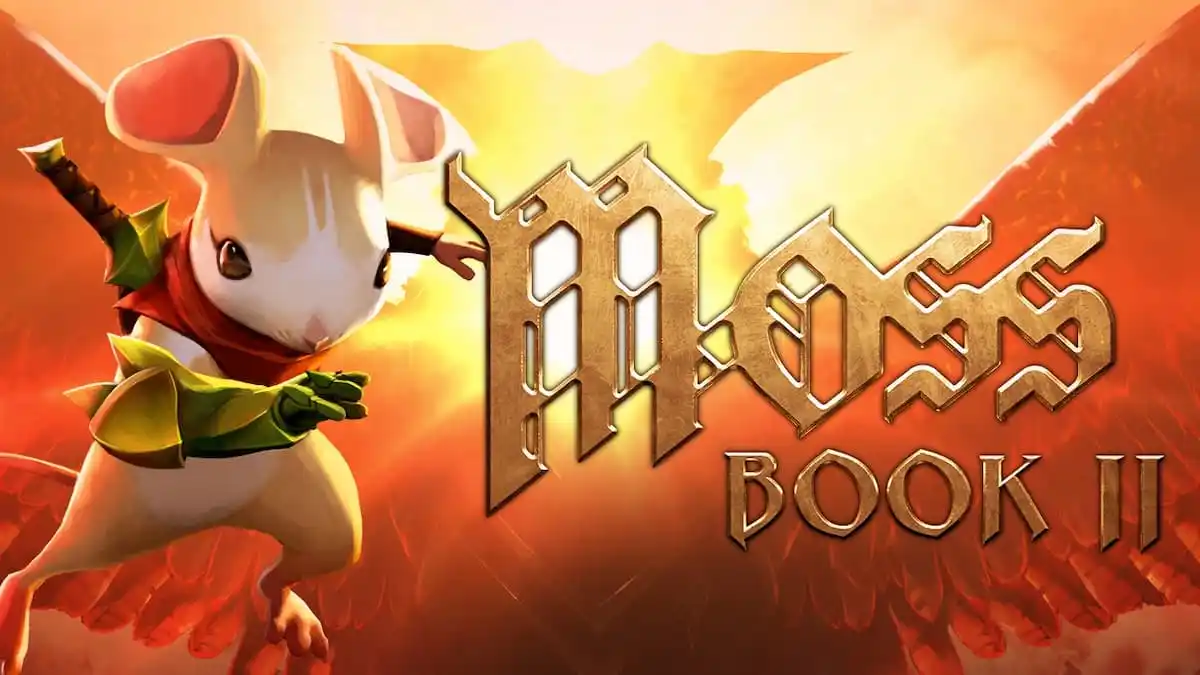






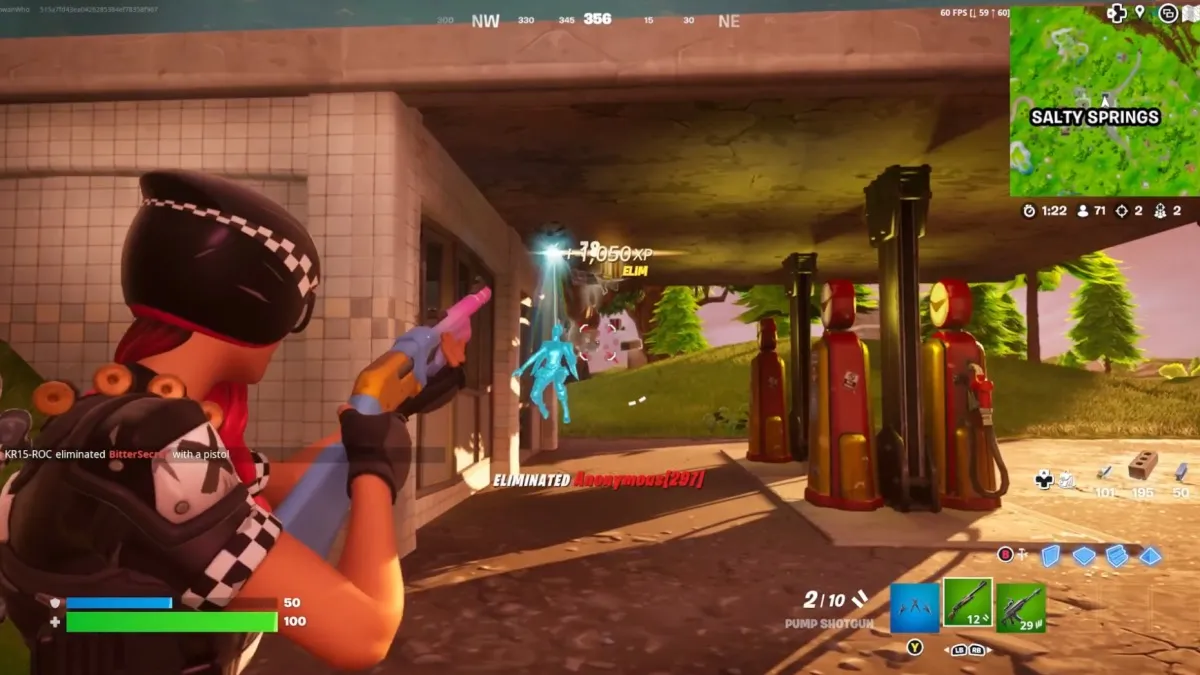




Updated: Apr 4, 2022 08:30 am